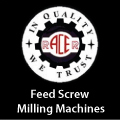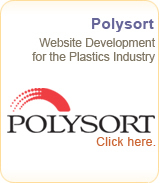
Pollution Control Products Co.
Contact: Gary Davis-Sales Manager / Ron Pierce-Industrial C David Miller-Senior Industrial Consultant
2677 Freewood drive
Dallas, TX 75220-9990
US-Texas-Dallas
Phone: 214-358-1539
Fax: 214-358-3379
Plastics, Fiber, & Chemical Manufacturers and Processors
PROBLEM:
There are dozens of way to create and shape plastic based materials - injection molding, extrusion, thermoforming, etc. The equipment used in these processes use screws, dies, molds, breaker plates, spin-packs, tips, hot runners, filters, heat exchangers, tri-mesh screens, and many other types of tooling.
Before AfterChanges in process materials or colors as well as simple maintenance can require that the tooling and equipment be cleaned. Some operators still clean expensive equipment using abrasive manual techniques (torches, brushes, sanders, drills). Others use costly technology such as fluidized beds or salt baths that rely on expensive and complicated systems to capture fumes created in the cleaning process. Repetitive manual cleaning will in time result in mechanical damage to expensive tooling, thus reducing the life of the part. Manual cleaning can also cause injury to employees.
Today's operating environments require ongoing quality and timely and affordable maintenance of equipment in a working environment of employee safety and environmental stewardship. Quality, affordable, safe, easy and inexpensive to operate.
SOLUTION:
Plastics machine tooling such as dies, molds, extruder screws, breaker plates, etc. can be cleaned in our Controlled Pyrolysis Cleaning Furnaces. Our Inert Gas model was specifically developed to meet the higher level cleaning needs of the Plastics, Fiber and Chemical industries.
Parts and equipment to be cleaned are loaded onto a movable cart or rack and loaded into the Furnace for cleaning. Depending on the polymer to be cleaned, the oven will operate at a processing temperature between 800-1000°F. Tooling is fully protected with minimal effect on rockwell hardness or nitriting. By pyrolysis - the chemical breakdown of the material, caused by the action of heat - the organic based polymer is converted into a carbon-based smoke. The smoke is then passed through an afterburner operating at 1500°F. leaving only odorless and harmless water vapor and carbon dioxide to exit through the exhaust stack. Emissions are state and federal EPA compliant.
After processing, the parts will be clean except for a small amount of inorganic ash that can easily wiped or blown from the cleaned parts. Rare applications (such as spinnerets with small holes) may require a short treatment in an ultrasonic bath. Production rejects can also be placed in the furnace to remove the plastic coatings and allow for re-manufacture. Average operating costs are between $3-$7 per cleaning cycle depending upon oven size.




